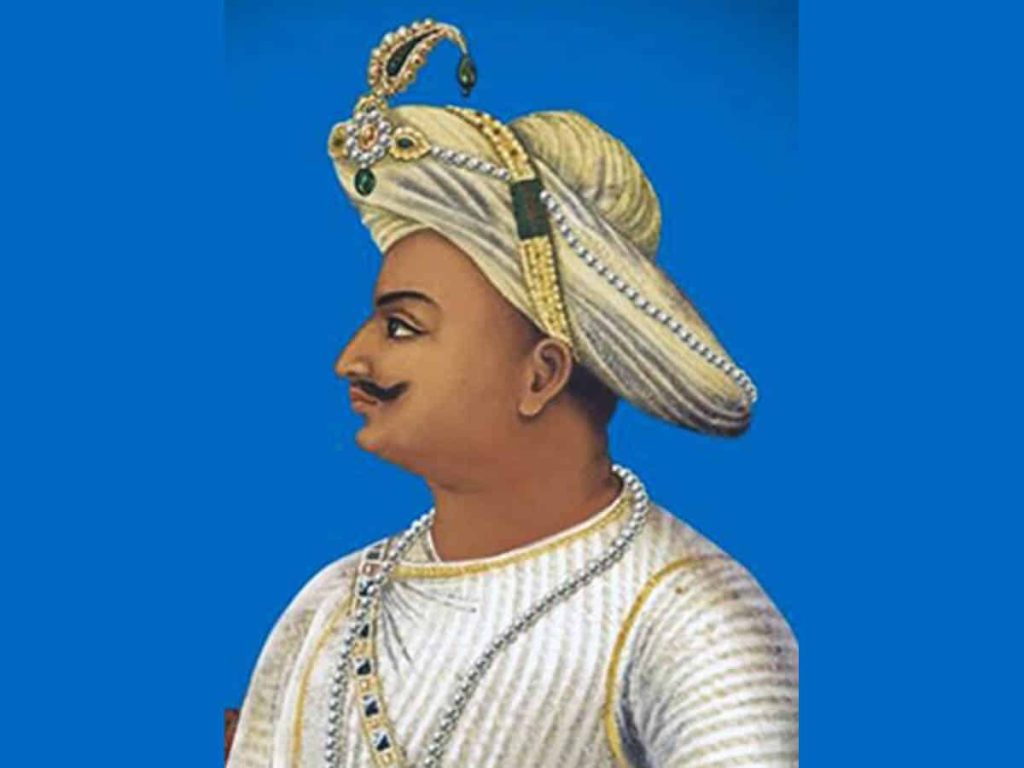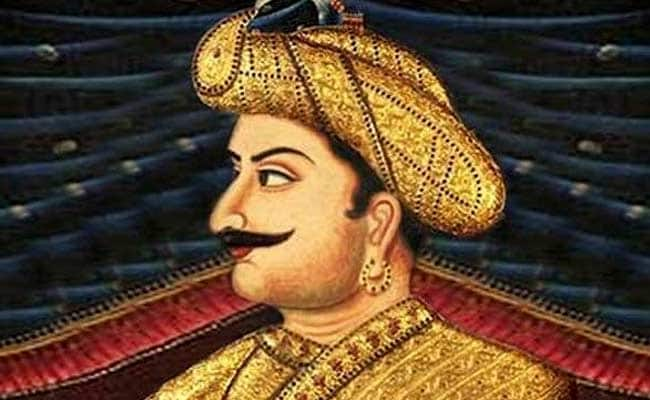
INTRODUCTION
- Tipu Sultan was an 18th century ruler of the Kingdom of Mysore.
- He is also known as the “Tiger of Mysore” for his bravery and courage.
- He is considered as one of the most powerful and influential rulers of the 18th century in India.
- He used new strategies such as “Guerrilla Warfare” to fight against the British East India Company.
- He was well-known for his use of rockets in battle which was an early form of firing.
- He fought against the British in four major wars, the First Mysore War (1767-1769), the Second Mysore War (1781-1784), the Third Mysore War (1790-1792) and the Fourth Mysore War (1799).
A WALK THROUGH HIS LIFE

- He was born on November 20th, 1750 in Devanahalli, Karnataka,India.
- He was the eldest son of Sultan Hyder Ali of Mysore and his wife Fatima Fakhr-un-Nisa.
- His father, Hyder Ali, was the Commander-in-Chief of the Mysore Army.
- His Father Sultan Hyder Ali overthrew the King and become king of Mysore in 1761.
- His Father was a powerful ruler and led successful wars against the Marathas, the British and other enemies.
- Tipu Sultan was educated at home by tutors and became fluent in several languages including Persian, Urdu,Marathi and English.
- He gained good knowledgeable in a variety of fields including Military operations and strategy, Engineering, Mathematics, Astronomy and Religious studies.
- He was also a skilled soldier and fought his first battle at the age of fifteen.
- He began his military career at a young age fighting alongside his father in the Second Anglo-Mysore War.
- He was a skilled military strategist and he modernise the Mysore Army.
- In 1782, Hyder Ali passed away and Tipu Sultan became the ruler of Mysore.
- Tipu Sultan was an ambitious ruler who sought to expand the Kingdom of Mysore through military campaigns and economic developments.
- He was an ambitious leader who look to expand the boundaries of his kingdom and establish a more powerful and independent Mysore.
- He introduced several reforms in the administration of his kingdom including the introduction of new laws,introduction of a new coin and new currency system etc.
- He was an admirer of French culture and sought to introduce French-style administration and reforms in his kingdom.
- He also tried to introduce western technology including the use of printing press and paper money.
- He greatly encouraged arts and literature and also wrote several books on History, Religion, and Philosophy.
- During the Third Anglo-Mysore War, Tipu Sultan fought bravely against the British and was successful in defending his kingdom.
- After the Third Anglo-Indian War,He also successfully negotiated a peace treaty with the British East India Company in 1792.The Treaty is known as “The Treaty of Srirangapatna”.
- He later spread his influence throughout South India.
- He also expanded the area of Mysore making it one of the largest kingdoms in India at that time.
- He built a strong army, modernized his capital city of Srirangapatna and developed industries such as iron, steel and textiles.
- He was one of the first South Indian rulers to use modern weapons and in battle. against Britisher’s.
- During Fourth Mysore War,He introduced several military reforms including the introduction of rocket artilleryagainst the Britisher’s.
- Tipu Sultan was defeated in the Fourth Mysore War and was killed in the battle of Srirangapatna on 4th May 1799.
- His death marked the end of Mysore as an independent kingdom.
- After his death,His Kingdom was taken over by Britisher’s.
CONCLUSION
- He is remembered as a heroic freedom fighter and a great leader of the Indian people.
- He is also remembered as a great warrior and ruler.
- He is known for his bravery and his efforts to protect the Kingdom of Mysore.
- He has been honored with numerous monuments and memorials in India.
- His legacy is observed in several monuments and museums including the Tipu Sultan Fort and Palace in Bangalore.
- He has been featured in numerous Plays, Films and Television series etc.
tippu, sultan, sultaan
